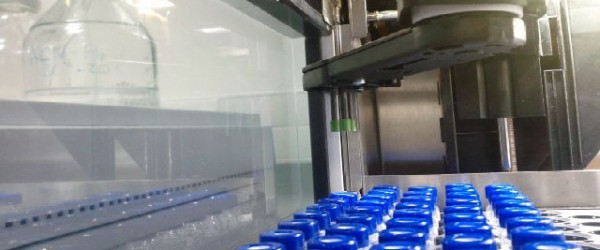Black Raspberries and Ulcerative Colitis July 18 2013, 0 Comments
For this research installment, we wanted to pick a recent study on black raspberry powder and how it can help with ulcerative colitis (inflammation of the colon that can increase the risk of colon cancer). The great thing about this study is the full text is also provided for us to jump into. Despite that, let’s try and keep things short and to the point.
Title: Anti-inflammatory effects of freeze-dried black raspberry powder in ulcerative colitis
Full Article: http://www.ncbi.nlm.nih.gov/pmc/articles/PMC3047236/
We urge you to at least open up the article and look through it, as it has a lot of great information!
What It Says
The first thing to notice is that unlike last week which was a human clinical trial, this specific study was done on mice. While there have been so many studies on black raspberries and colon-related issues that we do not doubt the data here, it is always important to remember that mice aren’t people!
What scientists did here was mimic acute ulcerative colitis in mice by adding a chemical to their diet for one week, and then treating a portion of the population with black raspberry powder and comparing the state of the colon to the mice that were not fed the powder. Black raspberry powder was given as either 5% or 10% of their daily diet, and administered for 1-2 weeks.
Since we have the full paper available to us, what we want to dig into are some of the results:
There are some interesting results on the mechanisms for how black raspberries work down below, but before we get into biomarkers let’s take a look at what black raspberries actually did to help with acute ulcerative colitis:
- It lowered colon ulcerations (from about 65% to less than 30% for those mice taking 10% black raspberry powder as part of their diet)
- It helped maintain body weight by helping maintain a healthy colon (better nutrient absorption)
- Reduced colonic shortening
So what are the black raspberry compounds actually doing in the colon to cause these results:
The first very interesting thing to focus on are the results for biomarkers of oxidative stress. Some scientists thought that the high levels of anti-oxidants in black raspberries might be one of the reasons it was helpful in reducing the damage from ulcerative colitis. However, the markers for oxidative stress remained almost equal between the group that was fed black raspberries and the group that was not. The conclusion from this is this that there is some other mechanism in black raspberries that is at work in reducing colon ulcerations. To quote the paper:
BRB protect against DSS-induced injury independently of oxidative/nitrative stress.
The focus then shifted to the black raspberries potent ability to reduce inflammation.
What scientists did find is that dietary black raspberry powder reduces pro-inflammatory cytokines, which are basically substances cells of the immune system can emit to affect surrounding cells. This was also tested on a couple other biomarkers that previously had only been tested in vitro, (fancy Latin for “it was done in a test tube”) and found that it also had an affect with mice. This in important because it shows that the compounds still have an affect while traveling through a living digestive system.
In conclusion, at least in mice, black raspberries significantly decrease the damage done by ulcerative colitis through reducing inflammation.

